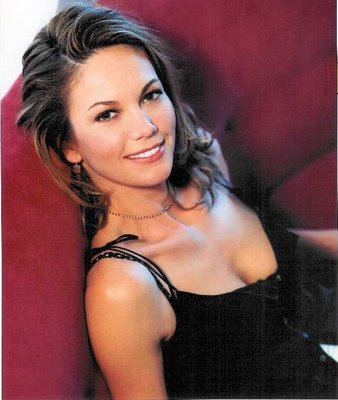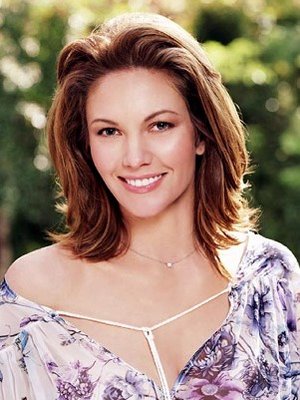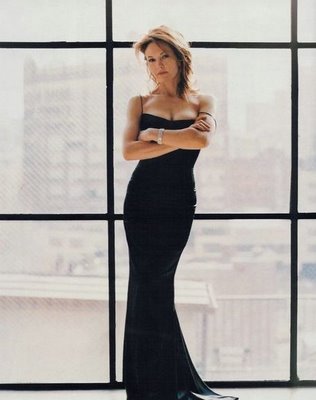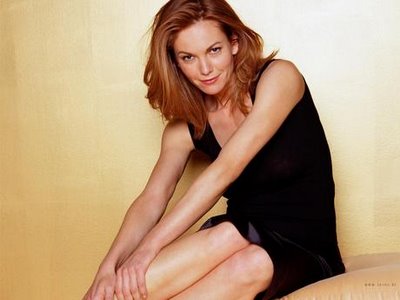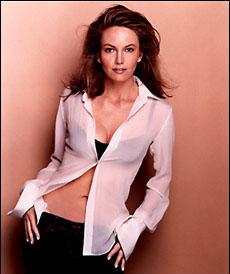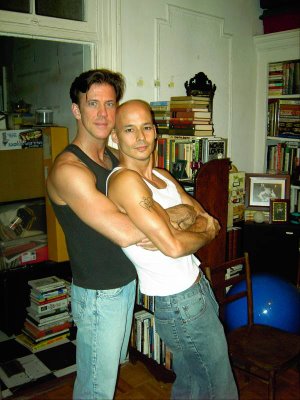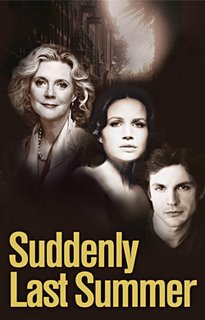
During the thirteen years that we have lived in New York there have been many times when we simply didn't have the money to attend the theater. It is a travesty. We both love theater and we live in this place where not only is there lots of theater but (usually) it is good theater and often it is starring famous actors that we love a lot. We always appreciate a trip to the theater and treat the opportunity with deep respect. When we do get to go, we have a tacit ritual of saying that we really should take advantage of the city's theatrical culture, more often.
But it gets expensive.
Because of money, we have missed productions that we dearly hated missing. Diana Rigg in MEDEA. Ralph Fiennes in HAMLET. THE HISTORY BOYS. Sometimes theatrical events just slip by us. They open, they run and they close and we just didn't get to go. Maybe there wasn't time. Maybe there wasn't money. Maybe the show was a sellout and there were no tickets. It happens and you just go on.
We all knew about SUDDENLY LAST SUMMER. It was announced ages ago. We were excited. Pat was excited because Blythe Danner is his favourite actress. He has loved her his entire life. She is one of the stars of the film version of his favourite musical 1776. Blythe is an important part of Pat's artistic life. I also have loved Blythe's work for my entire adulthood but, for me, the bond goes beyond that. While working on THE SWEATER BOOK, I met Blythe and she showed me that a famous person can treat an unfamous person with great kindness and respect and friendship. Blythe has been one of the lights in my career and in my life. There was no way Pat and I were going to miss a chance to see Blythe Danner play Violet Venable.
What do you know about that? Catharine Holly was to be played by Carla Gugino. In our house, there are Pat's ladies and there are Stephen's ladies. His are Bibi Besch and Jeri Ryan and Celia Weston and mine are Leann Hunley and Lee Remick and Madolyn Smith Osborne. Then there are the ones we share like Blythe or Kate Mulgrew or Anita Morris. We have an equal and abiding love of Carla Gugino. We have loved her from the moment we first saw her in that beacon of intelectualism, SON IN LAW. Ok, I'm being fecetious. SON IN LAW is a Pauly Shore comedy but the movie is really good and it has a good message and Carla Gugino is really good in it! We have watched tv shows because we read Carla Gugino was in them. We have gone to movies to see Carla Gugino. She is one of our girls.
But we missed seeing her onstage in AFTER THE FALL because we were broke. THAT hurt.
Becky Ann Baker is in SUDDENLY LAST SUMMER, playing at the Roundabout. Becky Baker is one of the staples of New York theater. She makes movies all the time. She is one of those actors that people in the business say is ingenius. She is a true actor's actor and to see a Becky Baker performance is to see acting artistry at its very best.
With these three women in SUDDENLY LAST SUMMER, how could we miss it?
Then there was the matter of Gale Harold.
Gale Harold is one of my personal heroes. Pat likes Gale. He likes his work. Annalisa and I were, especially, excited about seeing Gale live because we are both die hard QUEER AS FOLK fans. I know it's cliche. I'm a big homo with a QUEER AS FOLK thing. But I'm going to buck the cliche and talk about why I am (but not in great detail--I am saving that for a different story). First of all, QUEER AS FOLK is good theater. The American version of the show was created by Dan Lipman and Ron Cowen, who created my other favourite tv show SISTERS. These men know how to write theater. I have never seen anything they have written or created that I did not buy into completely and enjoy, absolutely. Secondly, QUEER AS FOLK is like my family of friends. Every typical and stereotypical person of gay society is featured therein--and even if they weren't gay, the characters would STILL be like the people I have in my life. And thirdly, Brian Kinney is my hero, my idol, my role model.
I recognize the difference between an actor and the character he plays. I also recognize that an actor does not create the character--a writer does. And Brian Kinney was, first, created by Russell T. Davies, who wrote the UK version of QUEER AS FOLK and called the character Stuart Alan Jones. That character was played by actor Aidan Gillen. Then Ron and Dan wrote the American version and changed the character's name to Brian Kinney. These are the men who made way for Gale Harold, who didn't so much as win the role of Brian Kinney as he did, claim it. No one could play this part and the creators were searching for him and Gale Harold, as the story goes, came in to audition and, simply, stepped into shoes which were, rightfully, his. Brian Kinney was born; created by many but brought to life by one.
There are a lot of Brian Kinney obsessives out there. Fans. Obsessives. There is a difference. There is a similarity. There are also stalkers. I would say I am a fan. I wouldn't say I am an obsessive, though some of my friends would. I would not, though, say I am a stalker. You can't work in show business as a photographer of celebrities and be a stalker--it will, quickly, kill your career. So I am a happy admirer of Gale Harold, the artist, from a distance. I can have as much Brian Kinney as I like, in the privacy of my own home, by watching the dvds. The reason this character is my hero is unique to me, I believe. I think it is different for every Brian Kinney fan. For me it is based on my own lifelong struggle with low self esteem and a wish to be confident, succesful and unapologetically true to who I am. It is not an admiration based on the fact that the character gets laid every 9 minutes of each episode. It is a loyalty that comes from recognizing the comlexities of a man who has very real emotions but who does not show them; who speaks the truth at whatever cost; who cares for people without fanfare, while putting up a display of not caring; who acknowledges his own wants and desires without apology but who can (and will) put those factors aside when it is important and step up to the plate. It is a character so complex that only an actor of immense talent and depth could bring him to life. I will, forever, be indebted to the men who created Brian Kinney but, especially, to Gale Harold for bringing him to life with such style, finesse and honesty.
So.
There was NO FREAKIN WAY I was gonna miss SUDDENLY LAST SUMMER.
But I dropped the ball.
There were time restrictions. There was a job change for Pat. There were holidays. There were financial troubles. There was illness. And then there were no tickets. And the show was set to close and I hadn't seen it. I was, simply put, devastated. No Blythe. No Carla. No Gale Harold.
In these many years in New York, I have (often!) pooled my last few dollars and gone to theaters on the last day of a show and bought a single ticket, a cancellation, standing room only to send Pat to see a play. I love theater but he lives for it. I can sacrifice my time in the theater. I can live without it. But it is imperative that he see these special events. I made sure he saw Anthony LaPaglia in A VIEW FROM THE BRIDGE. He was there to see Cherry Jones and Roy Dotrice in MOON FOR THE MISBEGOTTEN. I saw to it that he saw Vanessa Redgrave in LONG DAY'S JOURNEY INTO NIGHT. There have been others. Sadly, there have been ones we missed like HEARTBREAK HOUSE, which just closed a month ago. He really wanted to see it and we just couldn't make it happen. I let go of those moments we missed and focus on what we did get him into.
He turned the tables on me.
Aware of how sad I was, heartbroken in fact, to miss SUDDENLY LAST SUMMER, he left our home and went to the theater and got a cancellation. A single ticket. There were no others. He sacrificed his chance to see Blythe and Carla so that I could see them AND my hero. I don't mind telling you that I threw quite a tantrum at his insistence on sending me to the theater alone. I would rather do any and everything with him, than do it alone. I didn't want to experience this event without him. I was adamant. But so was he and, suddenly last Sunday, I found myself in the fifth row watching Blythe Danner an Gale Harold walk out into Santo Loquato's jungle in the freezing cold air of the Roundabout Theater. (Sidebar: they keep the theater too well air conditioned--during the course of the play, everyone in my row put their coats on. It is unnecessary.)
I don't really get Arthur Miller. I REALLY don't get Eugene O'Neill. I like Lanford Wilson and Patrick Marber and Schaffer. I like Oscar Wilde. I GET Tennessee Williams.
It's a tough nut--Violet Venable. She's been played by a lot of great actresses. Diana Rigg. Maggie Smith. Elizabeth Ashley. These are just the ones I have been aware of because of general theatrical knowledge. There is the film version with Katharine Hepburn. Legendary. She has been played as a gorgon, a monster, a matriarch. I have seen her played in regional theaters and in New York theaters. I have never seen her played as an aged Southern Belle. It was a completely refreshing, totally unique performance. This woman was so deluded about her age, desperate to hang on to her youth, dressing in a lavender coloured kimona and flirting with the young Doctor called Sugar, as though she were Daisy Buchanan trying to talk her husband into a summer-long cruise around the Mediterranean. Oh, she referred to her age but it was no more than fishing for compliments. This woman was as predatory as her not famous failure of a poet son, Sebastian, not to mention the birds who attacked the sea turtles or the children who attacked the poet in the various monologues of Williams' epic one act. There were times that I thought Mrs Venable might be able to unhinge her jaws, like a snake, and swallow Doctor Sugar, whole. Blythe created that effect. There was way she had of leaning toward Doctor Sugar, pausing, pursing her lips into a grotesque kiss-like formation and saying the words "Doctah..........
Suuuuugahhhhh" with a sigh that hissed like a snake's whisper of seduction. To complete the effect, Mrs Venable sucked on a peppermint that caused her to suckle in the mint flavoured saliva, as though it were an aperitif designed to whet the apetite for the Sugar'd meal that was to follow. It was a scary and uncomfortable performance unlike any Violet Venable I have ever seen; and when, in the final moments of the play, the truth of her son's death was revealed, a gutteral scream, a wail of woe, rose from a place deep within, not even the gut...it went deeper. This scream came from the reproductive organs and rose through the torso and out of, not the mouth but, the throat--the very voicebox--of this character who embodies Medea, Oedipus and Aquitaine all in one silk swaddled swoop. For the first time in my life I was watching a Mrs Venable that I actually believed might have engaged in some pre pubescent sexual congress with her own offspring.
THAT makes the performance important.
The sets and costumes were lush and vivid and absolutely what I expected them to be. Becky Baker--well, let's just sum it up by saying this "Becky Baker can do no wrong." I don't care what task you give her, she will hit it right out of Wrigley. I want to say this, too: the other supporting actors--Sandra Shipley, Karen Walsh, Wayne Wilcox--are worth mentioning. They are worthy of having their names known and spoken. They were committed to their roles and they did a bang on job. You're onstage with Blythe Danner, Becky Ann Baker, Gale Harold, Carla Gugino and a forest right out of JURASSIC PARK and you can still hold your own--that's not nothing.
My idol was one of the first people onstage. Tall with hair that has been blonded for the role and dressed in a fine white linen suit, he took my breath away. He is my idol and he is a matinee idol. If I weren't so ardent a fan of Gale Harold's, it STILL would have taken my breath away to see him walk onto a dark stage, a ball of light. He radiates--and I know that part of it is the light on the blonde hair and the white suit--but there is light coming from within.
Doctor Cukrowicz is a difficult role to play. I don't know why any actor would want to play him. He spends the first half of the play feeding three or five word lines to the actress playing Mrs Venable so that she can deliver what is, essentially, a seventeen or so page monologue. He spend the last half of the play doing the same for the actress playing Catherine. There is an intersection in the middle where he gets to say lines that are character driven. The actor gets to show that Doctor "Sugar" has a motive: he is looking for funding. Therein lies the key to the playing of Doctor Sugar. He must bend to the will of the monster that is Mrs Venable or he will lose the funding she has promised him and, possibly, his future. But a doctor is, first and foremost, a healer and he finds himself trapped in his desire to save the poor, disturbed girl who witnessed an actual cannibalization. How on earth does an actor capture that?
I watched Doctor Sugar's discomfort grow while the lascivious old lady leaned in to him and, with each of her lip licking sneers, threatened to devour and regurgitate him like an unripe cherry, not fit to swallow. He seemed, at times, unable to move away from her; at others, able but unwilling, as it might damage his cause. He offered reserved politenes while feeling out the best route to keep from being engulfed in quicksand. It was a nuanced performance by Gale Harold that communicated to me the precariousness of Sugar's situation; and when Catharine entered the picture and he had to change gears and become healer, saviour, the transition was like watching a teenager learning to drive a stick shift. Doctor Sugar had one foot in Mrs Venable's court as the equally magnetic, hypnotic Catherine pulled him into hers; and he went, kicking and screaming, until he was powerless under the new female's tidal pull.
Gale assumed a stance as Doctor Sugar in the last half of the play--even when he was seated, his position was the same. With marked slowness of physicality, he leaned further and further into Carla Gugino, as though unable to keep himself from the force of nature that was (not only Catherine Holly but) her incredible story. Even as he was being pulled in to her, though, his feet were planted firmly on the gound, his chest was puffed up and his arms locked in place -- he looked exactly like a Superhero. He had gone from being uncomfortable in Mrs Venable's presence to being Superman-like in Catherine's. It was a subtle and stunning transformation.
Then. The last line of the play. He held onto some lamp post or tree or some fixture that I didn't take the time to study and memorize, and his face and body seemed to waver and collapse..just a little..as he became completely and totally human. The two sides of Doctor Sugar became one, imploding in time and space, and his most honest moment came when he almost whispered "I think we ought at least to consider the possibility that the girl's story could be true..."
And the audience members sitting near me who had never seen the play before, gasped as the lights dimmed, incredulous that there would be no stronger resolution.
Now.
I'm going to say a few words about Carla Gugino. I don't know how to begin to write about what I saw her do on that stage because it was one of those theatrical events that become indescribable and can only rank as a scream of memory, as you age.
I am not a theatrical historian. I am not an academician or an expert. But I have seen enough theater in my life to know what's good and what goes and this is one of those performances I will remember forever. Like Albert Finney in ART, like Reba McEntire in ANNIE GET YOUR GUN, like Judi Dench in AMY'S VIEW, like Cherry Jones in THE HEIRESS; this was my exposure to Carla Gugino in SUDDENLY LAST SUMMER.
It was like watching Kim Stanley and Marilyn Monroe and Diane Lane and Stockard Channing and Judi Dench and Judith Ivey and the most foot stomping Bette Davis and, yes, even Elizabeth Taylor all rolled up into some impossible to make bit of baking that has some secret ingredient that the chef doesn't tell about, each time they give the recipe out. That secret ingredient is that thing, that spark that Carla Gugino has that makes her entirely and absolutely unique and irreplaceable as an artist of the acting profession.
Her portrayal of Catherine Holly was some freight train--a steam engine--that we see as the flame is lit. As the source of power becomes hotter and hotter, the engine goes faster and faster until it is no longer a train but a rollercoaster. And we are in the front seat. And there is no break. Carla Gugino went places with her voice, her speech pattern, her vocal projection that I didn't know actors could go. She could, in a split second, go from being uncomfortable and nervous, like a bird that is aware a cat is about to pounce, to being languid and lax. One moment, she was terrified of the world and the next she didn't give a good Goddamn about any of it. It was pillar and post, a luxurious tennis match played on one stage, on one face, in one voice, all by one brilliant actress. I get the feeling Carla Gugino gets Tennessee Williams too. I think she will become one of those actresses known for her relationship with a particular playwright--like Conchata Ferrell and Lanford Wilson or Swoosie Kurtz and John Guare. I believe that Carla Gugino will work her way through the Williams canon and become considered one of the foremost interpreters of his language. If she doesn't play Maggie the Cat, there is no God and I will be front and center on the day she opens as Blanche Dubois. It should be next month. I would recommend she play Maggie, Blanche and Catherine in rep but she would end up, thereafter, in the booby hatch. She is luminous. And speaking of luminous: as a photographer of beautiful women (Blythe Danner being one of the most beautiful of the ones I have had before my camera), I will tell you: there are few sights as luminous as Carla Gugino's white skin, clad in a white dress, with her black hair framing that work of art known as her face, decorated by one slash of candy apple red lipstick.
I tell you. The debt I owe Pat for making it possible for me to spend ninety minutes watching one of the great American actresses, my personal hero and this revelation of a performance by this young actress--I will never be able to pay it.
Fortunately, I have my whole life to try.

